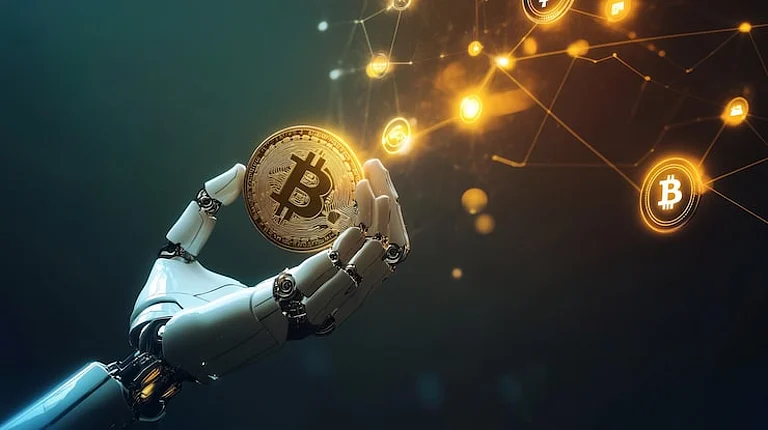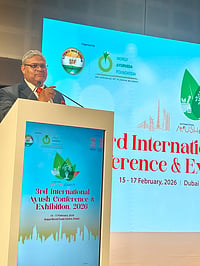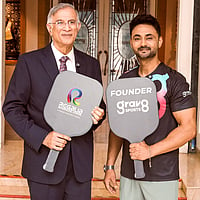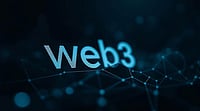Decentralized Autonomous Organizations, or DAOs, are quite possibly the most intriguing new territory on the face of the blockchain. DAOs represent a new and emerging method of organizing individuals, resources, and decision-making without the intervention of traditional centralized power. As digital economies have entered the picture, The Metaverse Can't Exist Without Crypto, and DAOs are stepping into the arena as the systems of governance that will facilitate this transformation. To really understand how important DAOs are, one must look into their functionality, advantages, disadvantages, and how they will shape the digital future.
Understanding DAOs: The Basics
In effect, a DAO is a company coded into existence that is not controlled by a board of directors or executives. Rather than rules being coded by a central body, they are coded in blockchain-based smart contracts. Smart contracts make decisions for themselves once the conditions have been satisfied, leaving them open to inspection and eliminating the possibility of manipulation.
In contrast to the conventional firms, where power lies with the few, DAOs distribute power among token holders. Token holders have a say in decision-making, ranging from approving budgets to new project launches. This builds a community model that is global, democratic, and transparent.
As the virtual realities grow, DAOs enable the framework of governance in places where the Metaverse Can't Be Possible Without Crypto. The distributed and trustless nature of DAOs allows individuals to work together and manage resources even if they are thousands of miles away from one another.
Why Are DAOs Important
The significance of DAOs is that they can make systems more just and inclusive. Most traditional organizations are burdened by bureaucracy, corruption, and unaccountability. DAOs address these challenges by substituting impenetrable processes with blockchain transparency. All decisions, votes, or transactions are written on an open book that anyone can see for verification.
For developers engaged in online forums or international projects, DAOs equate to autonomy from geographical and political restrictions. An Indian developer can work with a Canadian designer and a Brazilian marketer under one DAO and work towards the same goal without any fear of legal issues that generally stand in the way of transnational partnerships.
This model is even more significant when applied to the digital economy since Metaverse Can't Exist Without Crypto, and DAOs are decision-making systems required to regulate such virtual worlds. Without them, virtual world control would be centralized and susceptible to manipulation.
How DAOs Work
DAOs operate through governance tokens. The members holding these tokens are vested with the right to vote on matters such as where the budget goes to new partners. Voting strength might be proportional to the tokens in hand, but some DAOs have provisions to avoid control by large owners.
Smart contracts form the backbone of DAOs. Such deployed contracts cannot be modified without the consent of the community. This means that rules and regulations are not liable to haphazard alteration by one leader but are enforced using code.
The DAO's treasury is typically stored in cryptocurrencies. All members collectively determine how and where money gets spent, whether on rewarding contributors, funding projects, or funding the ecosystem in general. As the Metaverse Can't Exist Without Crypto, DAOs also naturally find their place within this ecosystem, enabling easy transactions between digital spaces.
DAOs in Action
Some DAOs have already shown the viability of this model. MakerDAO, for instance, is running the stablecoin DAI, now a benchmark of decentralized finance. Other DAOs are participating in collective investing, charity, or decentralized platform management.
In the metaverse context, DAOs can regulate virtual cities, virtual land, or virtual economies. They can decide the buildout of infrastructure in virtual worlds, social interaction rules, or allocation of virtual land. This keeps power decentralized and thus ensures the most significant principle that the Metaverse Cannot Exist Without Crypto and without DAOs.
Advantages of DAOs
DAOs offer individuals and organizations a variety of benefits. The greatest advantage is transparency because everything that occurs is logged on the blockchain. This makes the group trust in the system, as no individual can change anything without collective consent.
One more strength is accessibility. A DAO can be accessed by anyone with internet and governance tokens, anywhere in the world. This makes organizations more inclusive, giving strong voices to other voices, building stronger, more resilient organizations.
One more huge strength is efficiency. Because decisions are enforced by smart contracts, they're enforced automatically, removing delays and the middleman. Processes become faster, cheaper, and more reliable.
Challenges of DAOs
For all their potential, DAOs do pose problems. Security is one of them. Because DAOs are based on code, errors or faults in smart contracts could cause catastrophic loss, as the infamous 2016 DAO hack demonstrated.
Legal recognition is another problem. Most states do not recognize DAOs as legal entities, so it is challenging to create firm legal protections for members.
Secondly, DAO governance is sometimes inefficient. Since everyone has a stake in the decision, the process takes longer to include everyone, slowing everything down, and causing stagnation. Finding the balance between inclusivity and efficiency is an issue for most DAOs.
The Future of DAOs
The future of DAOs has a very intimate relation with the development of digital economies. When societies are going online and becoming decentralized at an ever-growing pace, it becomes necessary to develop new ways of governance. DAOs provide that framework by bringing together transparency, inclusivity, and automation.
In the years to come, DAOs will not only be ruling over online communities but also physical properties and services. DAOs will revolutionize how resources are managed and distributed across fields ranging from decentralized finance to gaming, social platforms to charity.
Most significantly, as virtual worlds get larger, DAOs will play a central role in the formation of the metaverse. Because the Metaverse Cannot Exist Without Crypto, nor can it exist without DAOs because governance is equally as crucial as the currency that powers these worlds.
Conclusion
Decentralized Autonomous Organizations represent the revolutionary change in human beings' way of cooperating, working, and governing. With their potential to substitute centralized power with blockchain decision-making, DAOs bring transparency, equity, and inclusivity to virtual economies.
Their significance is even greater in the future digital world, where the Metaverse Can't Be Built Without Crypto, and DAOs are the governance mechanisms that make these worlds democratic, just, and secure.
Although there are difficulties, the scope of DAOs is enormous. They are not merely a technical innovation but also a social revolution, transforming the way humans come together to produce value, allocate resources, and form communities beyond borders and boundaries.

























